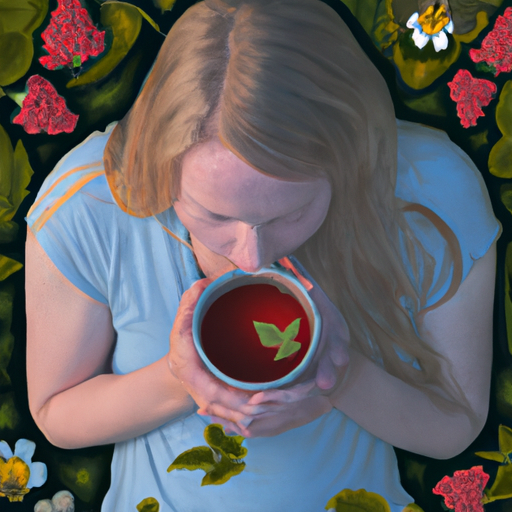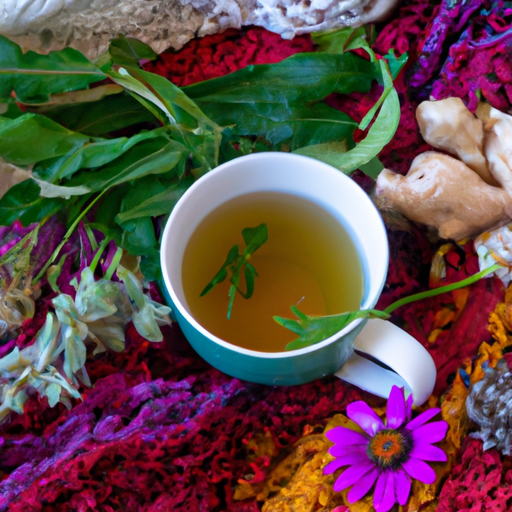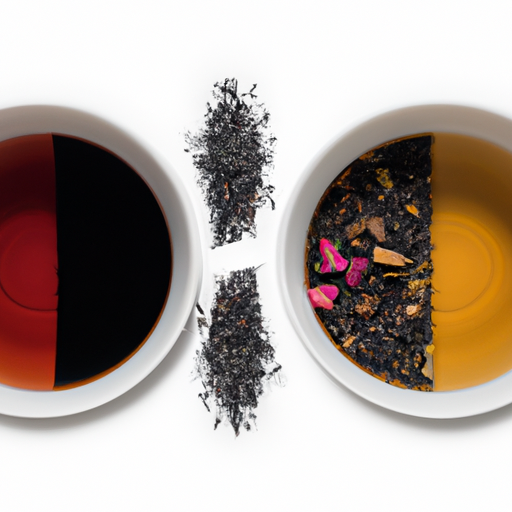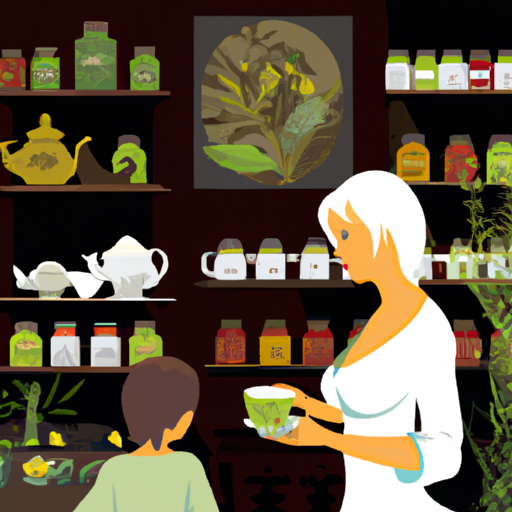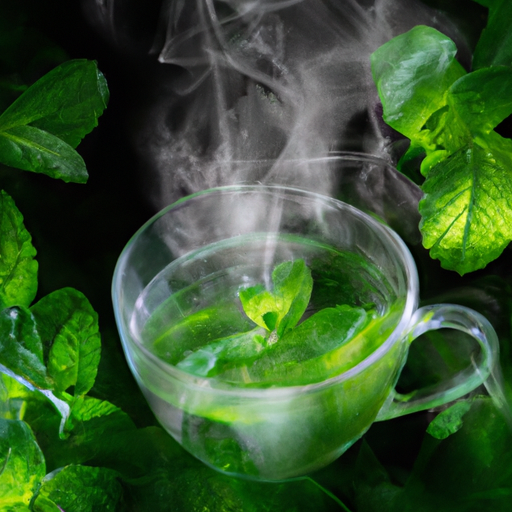As a woman who is trying to get pregnant, you may have questioned whether it’s okay to drink your beloved herbal teas. Herbal teas are commonly praised for their many health advantages. But when it comes to fertility, is it safe to continue sipping on herbal goodness? Let’s uncover the reality behind this belief.
Many herbal teas have been used for centuries to support reproductive health and boost fertility. They are believed to help regulate hormones, reduce inflammation, and improve overall reproductive function. However, it is important to tread cautiously, as not all herbal teas are safe during conception.
In this article, we will delve into the potential risks of consuming herbal tea while trying to conceive. We will also discuss the herbal teas that are considered safe and those that should be avoided. Additionally, we will provide guidelines on dosage and timing, as well as alternative beverages that can support fertility.
Before making any changes to your diet, it is always advisable to consult with a healthcare professional. So, let’s dive in and find the perfect balance between safety and enjoyment in herbal tea consumption during conception.
Key Takeaways
- Herbal teas have been used for centuries to support reproductive health and boost fertility.
- Not all herbal teas are safe during conception, caution is advised.
- Red raspberry leaf tea can help tone the uterus and prepare it for pregnancy.
- It is recommended to consult with a healthcare professional before incorporating herbal teas into the conception journey.
Understand the Potential Risks of Herbal Tea During Conception
Drinking herbal tea while trying to conceive may pose potential risks that need to be understood. While herbal teas are often touted for their potential benefits, it’s important to be aware of any potential side effects they may have on fertility.
Some herbal teas contain ingredients that could interfere with hormone levels or affect reproductive function. For example, certain herbs like peppermint and chamomile have been associated with a decrease in estrogen levels, which could impact fertility.
Additionally, some herbal teas may contain substances that could be harmful to a developing fetus if consumed during pregnancy. It’s always best to consult with a healthcare professional before incorporating herbal teas into your conception journey.
In the next section, we will explore safe herbal teas to drink while trying to conceive, ensuring that you can enjoy a warm cup of tea without any concerns.
Safe Herbal Teas to Drink While Trying to Conceive
Indulging in certain soothing blends can be a delightful way to support your fertility journey. Herbal tea has been used for centuries to promote health and wellness, and it can also have benefits for those trying to conceive.
Some herbal teas, such as red raspberry leaf tea, may help to tone the uterus and prepare it for pregnancy. Other teas, like nettle leaf tea, are rich in vitamins and minerals that are essential for reproductive health. Additionally, chamomile tea can help to reduce stress and promote relaxation, which is important when trying to conceive.
However, it’s important to note that not all herbal teas are safe during conception. In the next section, we’ll discuss herbal teas to avoid during this time.
Herbal Teas to Avoid During Conception
Sipping on certain herbal concoctions during conception might not be the wisest choice if you’re hoping for a smooth fertility journey. While herbal teas can have many benefits for reproductive health, some varieties may interfere with conception. It’s important to be cautious and avoid certain herbal teas that could potentially hinder your chances of getting pregnant.
For instance, teas like black cohosh, Dong Quai, and red raspberry leaf are believed to have negative effects on fertility. These teas may alter hormone levels or stimulate contractions in the uterus, which could interfere with the implantation process. To ensure you’re giving yourself the best chance at conception, it’s recommended to stay away from these specific herbal teas.
Now, let’s move on to considerations for herbal tea dosage and timing to further optimize your fertility journey.
Considerations for Herbal Tea Dosage and Timing
Timing and dosage play a crucial role in harnessing the full potential of herbal teas for optimizing your fertility journey. When it comes to herbal tea and fertility, it’s important to consider the benefits that specific herbal teas can provide. Certain herbal teas, such as red raspberry leaf, nettle leaf, and peppermint, have traditionally been used to support reproductive health and improve fertility. However, it’s essential to be mindful of the dosage and timing of these teas. While moderate consumption of herbal teas can be beneficial, excessive intake may have adverse effects. It’s advisable to consult with a healthcare professional to determine the appropriate dosage and timing for your specific needs and circumstances.
Transitioning into the subsequent section, seeking guidance from a healthcare professional can provide personalized recommendations tailored to your fertility journey.
Consult with a Healthcare Professional
Seeking guidance from a healthcare professional can provide valuable insights and personalized recommendations, ultimately enhancing your fertility journey.
Did you know that according to a study published in the Journal of Obstetrics and Gynecology, women who received fertility counseling from healthcare professionals were more likely to conceive within a year compared to those who didn’t seek professional advice?
When it comes to drinking herbal tea while trying to conceive, it’s important to consult with a healthcare professional to fully understand the risks and benefits. Some herbal teas may have potential benefits for fertility, such as red raspberry leaf tea, which is believed to tone the uterus. However, other herbal teas may have risks and could interfere with fertility.
It’s crucial to discuss your specific situation with a healthcare professional to ensure you make informed choices.
Now, let’s explore alternative beverages to support fertility.
Alternative Beverages to Support Fertility
To enhance your fertility journey, consider incorporating alternative beverages that can support your reproductive health. There are several fertility boosting beverages and natural remedies for conception that you can explore. These beverages are not only delicious but also packed with nutrients that can potentially improve your chances of conceiving. Here are some options to consider:
| Beverage | Benefits |
|---|---|
| Green Tea | Rich in antioxidants that may improve egg quality |
| Raspberry Leaf Tea | Supports uterine health and hormone balance |
| Maca Root Smoothie | Balances hormones and enhances fertility |
| Pomegranate Juice | Boosts blood flow to the uterus |
| Chasteberry Tea | Regulates menstrual cycles and promotes ovulation |
Incorporating these beverages into your daily routine can be a simple and enjoyable way to support your fertility. However, it’s important to remember that herbal teas should be consumed in moderation and always consult with your healthcare professional before making any significant changes to your diet. Transitioning into the next section, let’s explore how to balance safety and enjoyment in herbal tea consumption during conception.
Conclusion: Balancing Safety and Enjoyment in Herbal Tea Consumption During Conception
In order to ensure a safe and enjoyable experience when incorporating herbal beverages into your fertility journey, it’s crucial to consult with your healthcare professional for guidance and support.
Balancing safety and enjoyment is essential when it comes to consuming herbal tea during conception. While herbal teas can offer potential benefits, it’s important to be cautious and informed about the specific herbs and their effects on fertility. Some herbs may have contraindications or potential risks during conception, so it’s best to consult with a healthcare professional who can provide personalized advice based on your specific situation.
Additionally, it’s important to remember that moderation is key when consuming herbal teas. Enjoying a cup or two a day can be a part of a healthy lifestyle, but excessive consumption may have negative effects.
Overall, finding a balance between safety and enjoyment is crucial when it comes to incorporating herbal tea into your fertility journey.
Frequently Asked Questions
Can herbal teas affect fertility in both men and women?
Herbal teas have not been shown to have a significant impact on fertility in either men or women. There is no evidence linking herbal tea consumption to changes in ovulation or sperm count.
Are there any specific herbal teas that can enhance fertility?
Some herbal teas, like red raspberry leaf tea, have been shown to enhance fertility by promoting a healthy uterine lining and balancing hormones. These benefits can aid conception and increase the chances of getting pregnant.
Can drinking herbal teas increase the risk of miscarriage?
Drinking herbal teas during pregnancy does not increase the risk of miscarriage. However, it is important to choose safe herbal teas and consume them in moderation. Always consult with a healthcare provider for personalized advice.
Are there any herbal teas that can interfere with hormonal balance?
Some herbal teas can interfere with hormonal balance, which can affect menstrual cycle regularity. It’s important to be cautious when consuming herbal teas and consult with a healthcare professional for personalized advice.
Can herbal teas have a negative impact on sperm quality?
Herbal teas can potentially have a negative impact on sperm quality, which can in turn affect fertility. It is important to be cautious and consult with a healthcare professional before consuming herbal teas when trying to conceive.
Conclusion
Well, after all this research, it turns out that drinking herbal tea when trying to conceive is completely unnecessary! Who would have thought?
While some herbal teas may have potential risks, there are plenty of safe options out there for you to enjoy. Just remember to consult with a healthcare professional to ensure you’re making the best choices for your fertility journey.
And hey, if herbal tea isn’t your thing, there are always other beverages that can support your fertility. Cheers to that!

